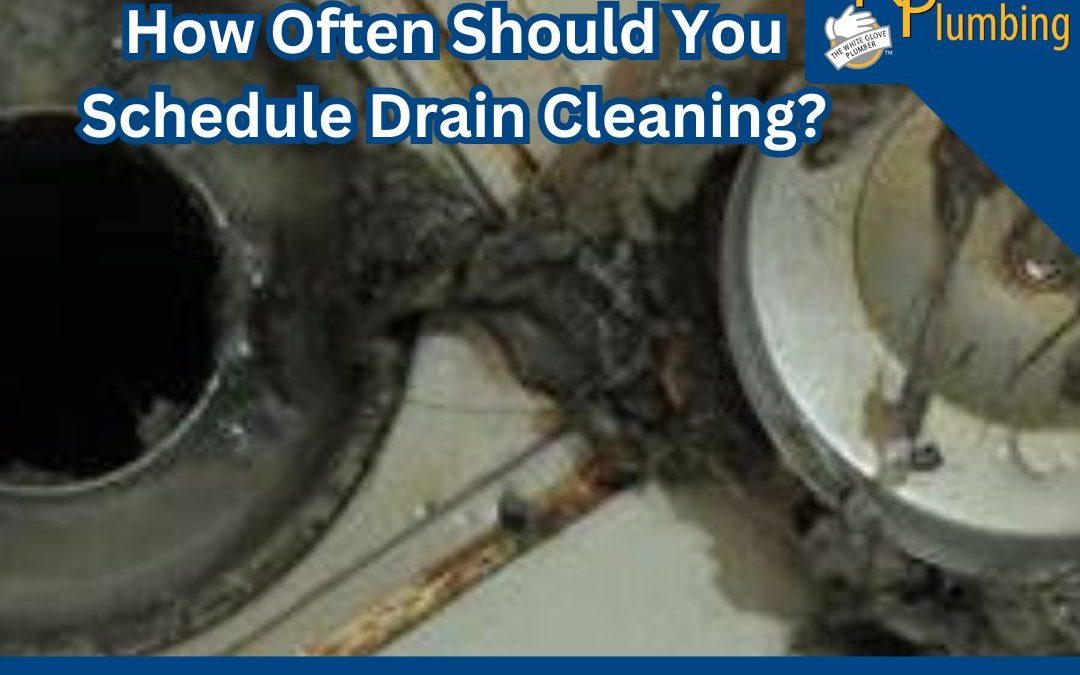You should schedule professional drain cleaning once a year to keep your plumbing system efficient and clog-free.
Regular drain cleaning is essential to maintaining a healthy and functional home plumbing system. In Arlington Texas, where seasonal shifts can impact water flow and pipe integrity, annual maintenance prevents disruptive backups, foul odors, and long-term damage. With professional care, you can preserve your pipes and avoid unexpected disruptions.
Why Annual Drain Cleaning Matters
Annual drain cleaning isn’t just about solving visible issues like slow drains or minor clogs. It serves as preventive maintenance for your plumbing infrastructure. Over the months, organic material like grease, soap residue, hair, food particles, and even mineral deposits accumulate inside your drainpipes. This buildup narrows the pipe’s diameter, reduces water flow, and creates a breeding ground for bacteria.
Left unchecked, this can lead to foul smells, recurring blockages, and even damage that may require more invasive plumbing work. Annual professional cleaning helps remove this buildup, ensuring your system remains in top condition. It’s a proactive step that supports proper drainage, promotes sanitary conditions, and extends the life of your plumbing system.
Signs You May Need Drain Cleaning Sooner
Even with a yearly schedule, some signs indicate that your system may need attention before your next planned service:
- Slow draining sinks, tubs, or showers
- Gurgling noises from drains or toilets
- Persistent foul odors from fixtures
- Water backups or pooling
- Repeated clogs in the same area
If you experience any of these, it’s wise to call in a professional plumber. These symptoms suggest that a blockage or underlying issue is already developing and may lead to more serious complications.
Factors That Influence Cleaning Frequency
1. Household Size
Larger families tend to place more stress on their plumbing system. More people using toilets, showers, sinks, and appliances means faster accumulation of debris. In households with four or more residents, cleaning every 6 to 9 months is often recommended.
2. Kitchen Habits
Kitchens are common sources of drain clogs. If grease, coffee grounds, or food waste frequently go down the sink, the pipes are more prone to buildup. In such homes, a biannual check on kitchen drains is a smart move.
3. Age and Type of Plumbing
Older homes often have aging or corroded pipes that are more susceptible to blockages and damage. These systems require more frequent inspections and cleanings. In Arlington Texas, many neighborhoods have older plumbing that needs regular upkeep.
4. Tree Roots and Outdoor Factors
If trees are close to your sewer line, root intrusion can be a serious concern. Tree roots naturally seek out moisture and can enter small cracks in pipes, causing slow drains and blockages. In these cases, annual cleaning paired with a camera inspection is recommended.
DIY Methods vs. Professional Drain Cleaning
While chemical drain cleaners and plungers are common household tools, they are often short-term fixes. Over-the-counter chemical cleaners can corrode your pipes, and plungers may only move clogs rather than clear them entirely.
Professional plumbers, however, use tools like hydro-jetting systems and motorized augers to thoroughly clean the entire pipe. These methods are safer, more effective, and prevent recurring issues. A licensed plumber can also conduct a system-wide inspection to catch potential problems early.
Benefits of Routine Drain Cleaning
Consistent drain maintenance offers multiple benefits that support the health and efficiency of your entire plumbing system:
Improved Water Flow
Clean pipes mean fewer obstructions and smoother water flow throughout your home.
Fewer Clogs
Regular maintenance helps prevent buildup of hair, soap, grease, and food waste that cause blockages.
Odor Elimination
Decomposing materials inside pipes can create unpleasant smells. Cleaning removes the source of odors.
Longer Pipe Lifespan
Removing corrosive materials and buildup reduces wear and tear, extending the life of your pipes.
Healthier Home Environment
Clean drains help prevent bacteria and mold growth, contributing to better indoor air quality and sanitation.
Drain Types and Specific Cleaning Needs
Different drains throughout your home have unique maintenance requirements:
Kitchen Sink Drains
Grease, oil, and food particles are common culprits here. Clean these every 6 to 12 months.
Bathroom Drains
Hair and soap scum quickly collect in bathroom sinks, tubs, and showers. Clean these annually or more often for larger households.
Laundry Drains
Lint and detergent can create hidden clogs over time. Annual cleaning is recommended.
Main Sewer Line
This is the most critical part of your plumbing system. Schedule professional cleaning once a year, especially if your home is older or you’ve had previous issues.
What Happens During Professional Drain Cleaning?
A typical drain cleaning service includes several important steps:
- Initial Inspection: The plumber evaluates flow speed and symptoms to identify problem areas.
- Mechanical Cleaning: Depending on the situation, tools like motorized augers or hydro-jetting systems are used to clear debris.
- Camera Inspection (if necessary): Small waterproof cameras may be used to examine the interior of your pipes.
- Post-Service Testing: Flow is tested again to ensure the problem is resolved.
- Maintenance Tips: Your plumber may offer recommendations tailored to your home and lifestyle.
This comprehensive process ensures your system is not just clear for today, but also protected against future issues.
Seasonal Considerations for Arlington Texas Homes
Plumbing systems in Arlington Texas are subject to unique stress due to regional weather patterns. Wet springs can saturate soil, shifting underground pipes. Dry summers can also lead to soil contraction and minor pipe displacements. Both can stress your drainage system.
These shifts make regular drain inspections and cleaning even more critical. By scheduling preventive service before peak weather seasons, you can avoid backups, pipe misalignment, or worse.
How Drain Cleaning Complements Plumbing Maintenance
Drain cleaning is one pillar in a comprehensive plumbing care routine. When paired with annual plumbing inspections, water heater flushing, and pressure testing, it forms a full-circle maintenance plan that helps you avoid sudden emergencies.
Ignoring small symptoms today can lead to expensive and disruptive repairs down the line. Proactive care creates a smoother, safer home environment.
When to Seek Immediate Drain Help
Don’t wait for your annual appointment if you notice these warning signs:
- Multiple drains slow or clogged at once
- Sewer smells inside or outside your home
- Water pooling in sinks or tubs
- Gurgling or bubbling from pipes
These are indicators of a potential main line issue and should be evaluated right away by a licensed plumbing expert.
Conclusion: Make Drain Cleaning Part of Your Home Routine
So, how often should you schedule drain cleaning? Once a year is ideal for most households. However, homes with large families, aging plumbing, or past issues may require more frequent care. In Arlington Texas, routine drain maintenance is especially important due to shifting seasonal conditions and older infrastructure in many areas.
Staying ahead of clogs, backups, and pipe damage is easy when you plan proactively. Don’t wait for an emergency to remind you of the importance of clean drains.








